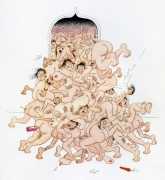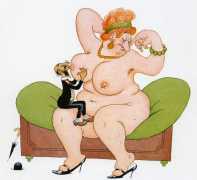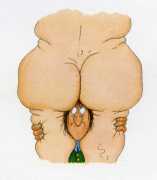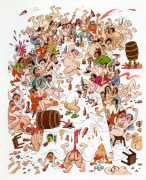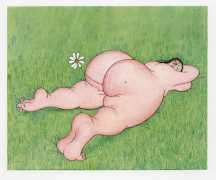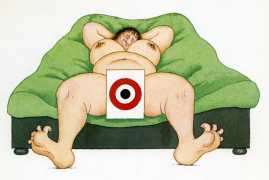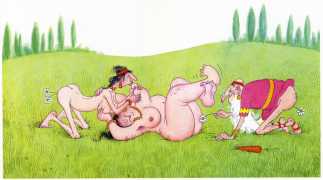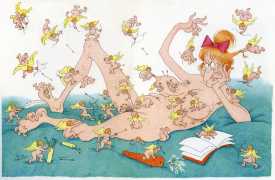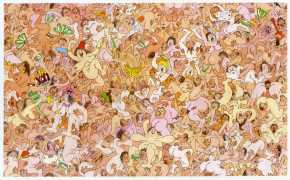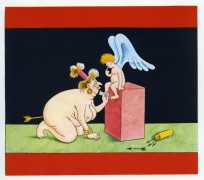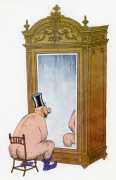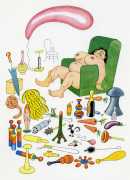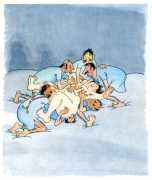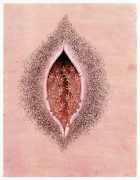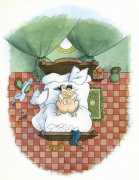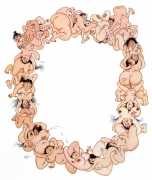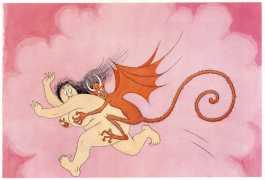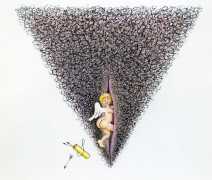 Here we have one of those French traditions which is almost impossible to understand in translation – chansons de salles de garde, literally ‘waiting room songs’. The hospital common rooms in question have a long tradition stretching back to the twelfth century Hôtels-Dieu or ‘Maisons de Charité’, developing over the centuries into breathing spaces where doctors and interns could relax and recover; they were often part of the establishment’s staff accommodation. Traditionally these spaces were free from administrative control, having alternative ‘rules’ of their own where doctors (all men of course until very recently) could let off steam. And an important part of that tradition is the sexually explicit bawdy song; awaiting procedures which may result in pain or too commonly death requires a libertine outlook, so singing risqué songs is often the best way to pass the time. Chansons de salles de garde is a particularly French tradition – neither ‘bawdy ballads’ in English nor ‘lustige Lieder’ in German are quite as in-your-face.
Here we have one of those French traditions which is almost impossible to understand in translation – chansons de salles de garde, literally ‘waiting room songs’. The hospital common rooms in question have a long tradition stretching back to the twelfth century Hôtels-Dieu or ‘Maisons de Charité’, developing over the centuries into breathing spaces where doctors and interns could relax and recover; they were often part of the establishment’s staff accommodation. Traditionally these spaces were free from administrative control, having alternative ‘rules’ of their own where doctors (all men of course until very recently) could let off steam. And an important part of that tradition is the sexually explicit bawdy song; awaiting procedures which may result in pain or too commonly death requires a libertine outlook, so singing risqué songs is often the best way to pass the time. Chansons de salles de garde is a particularly French tradition – neither ‘bawdy ballads’ in English nor ‘lustige Lieder’ in German are quite as in-your-face.
Albert Dubout was in his element with this commission from Michèle Trinckvel, and the illustrations include some of the best of his light erotic humour, which nonetheless capture important truths about human concerns and frailties. His older woman assailed by multiple cupids, and his older man checking his attributes in the mirror, are true Dubout classics.
The Dubout-illustrated Chansons de salles de garde was published by Michèle Trinckvel in a limited numbered edition of 5,000 copies, of which 460 included an additional set of plates and forty of these an original watercolour.


